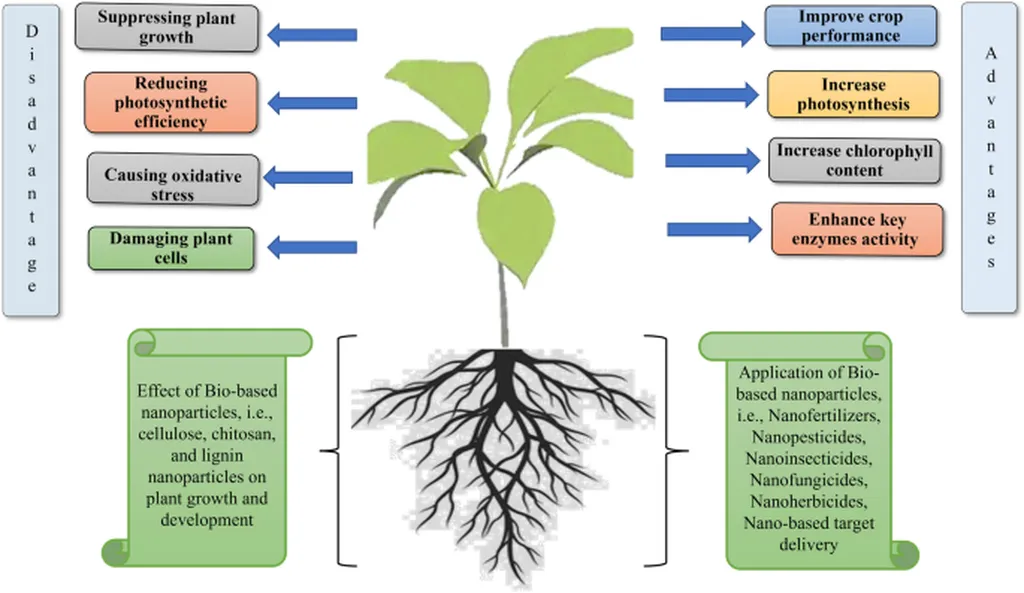In a groundbreaking study published in *Scientific Reports*, researchers have uncovered a novel application of exosome-like nanoparticles (ELNs) derived from Actinidia deliciosa, commonly known as kiwi fruit. The research, led by Dina Salem of the Department of Agricultural Biotechnology at Misr University for Science and Technology, explores the antifungal properties of these nanoparticles, potentially revolutionizing plant disease management and offering significant commercial impacts for the agricultural sector.
Exosome-like nanoparticles are tiny vesicles that play a crucial role in cellular communication, both within and between different kingdoms of life. However, their presence and function in plants have remained largely unexplored until now. Salem and her team isolated ELNs from Actinidia deliciosa using a polymer precipitation method and characterized them using dynamic light scattering and transmission electron microscopy. Their findings revealed that these nanoparticles range in size from 30 to 150 nanometers, a size range that makes them highly effective for biological interactions.
The study then evaluated the antifungal activity of these ELNs against three major plant pathogens: Fusarium oxysporum, Fusarium solani, and Botrytis cinerea. The results were promising, showing that the ELNs significantly inhibited the germination and density of fungal spores. “The presence of multiple plant defense-related proteins in these extracellular vesicles suggests that they could be important elements of plant immunity,” Salem explained. This discovery opens up new avenues for developing sustainable and effective antifungal treatments in agriculture.
One of the most intriguing aspects of this research is the identification of 33 unique proteins within the ELNs using LC-MS/MS (liquid chromatography-tandem mass spectrometry). Several of these proteins are known to be involved in plant-microbe interactions, further supporting the idea that ELNs could play a pivotal role in plant defense mechanisms. “This research not only sheds light on the biological significance of plant-derived ELNs but also paves the way for innovative applications in crop protection,” Salem added.
The commercial implications of this research are substantial. In an era where sustainable agriculture is becoming increasingly important, the development of bio-based antifungal agents derived from plant ELNs could offer a greener alternative to synthetic chemicals. This could lead to reduced environmental impact and improved crop yields, benefiting farmers and consumers alike.
The study’s findings were published in *Scientific Reports*, a prestigious journal known for its rigorous peer-review process and high standards of scientific excellence. As the agricultural industry continues to seek innovative solutions to combat plant diseases, the research conducted by Dina Salem and her team could shape the future of crop protection strategies. The potential applications of these ELNs extend beyond agriculture, with possible implications for human health and environmental sustainability.
In conclusion, this research represents a significant step forward in our understanding of plant-derived exosome-like nanoparticles and their antifungal properties. As the scientific community continues to explore the potential of these tiny vesicles, the agricultural sector stands to benefit from more sustainable and effective disease management practices. The work of Dina Salem and her team highlights the importance of interdisciplinary research in driving innovation and addressing global challenges in agriculture.

